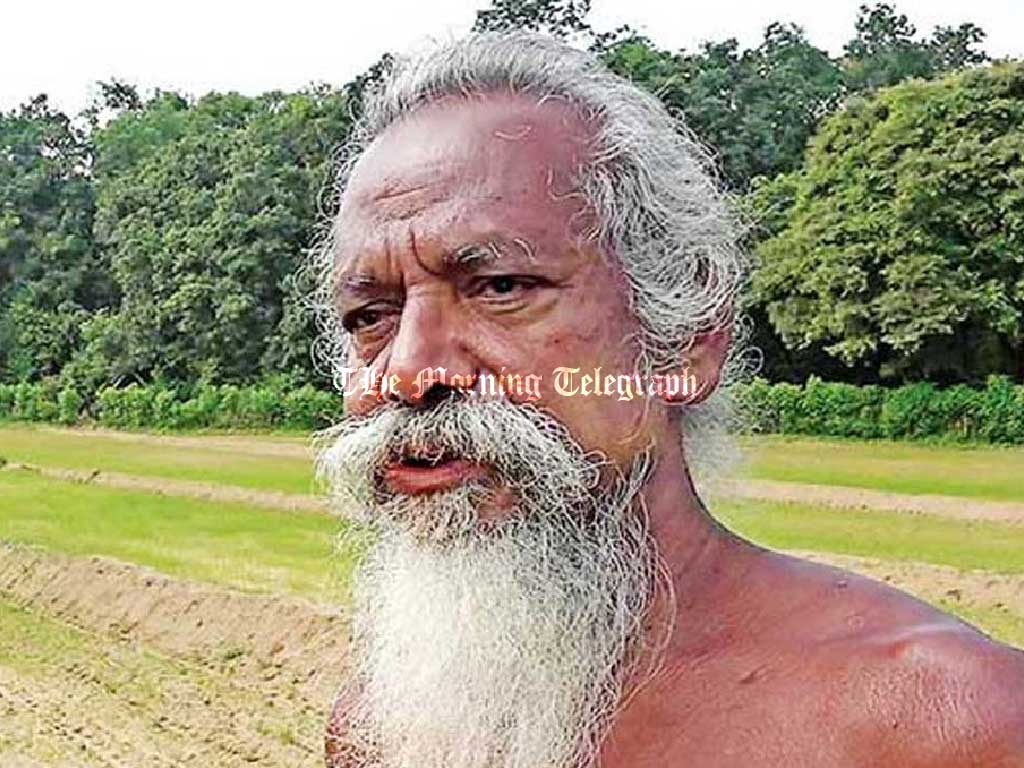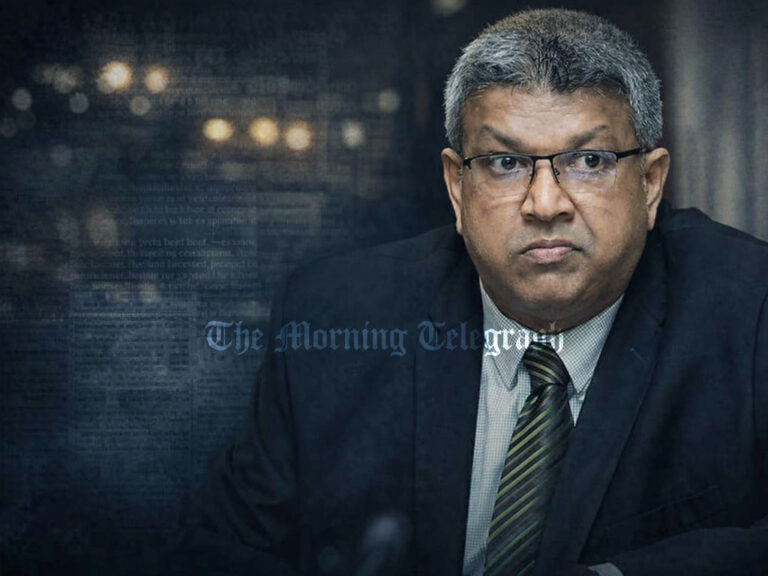
Sri Lanka is facing one of the worst natural disasters in recent history, with devastating floods submerging large swaths of the country’s key agricultural regions. Vishwa Keerthi Vanaspathi Uruwarige Vanniyalaththo, a prominent tribal leader, has voiced his concerns, urging the government to provide fair and adequate compensation to the thousands of farmers whose livelihoods have been wiped out by the disaster.
Speaking from Kotabakiniya village, Dambana, Vanniyalatho highlighted the severity of the situation, noting the widespread destruction in major rice-producing districts such as Ampara, Batticaloa, Polonnaruwa, and Anuradhapura. These regions, which form the backbone of Sri Lanka’s rice production, have been hit hardest by the torrential rains, leading to severe flooding in Mahaweli zones and other farmlands.
“This is not just a localized issue; it’s a national crisis,” Vanniyalatho stated. “Floodwaters have submerged homes, displaced families, drowned livestock, and destroyed thousands of acres of paddy fields. People are left helpless, with no means to rebuild their lives. Entire villages are under water, and the damage to farmland is unprecedented.”
Warning of a Food Crisis
The tribal leader expressed concern over the long-term impact of the disaster, warning that the country could face a severe food shortage in the coming months if immediate action is not taken.
“If we do not act now, Sri Lanka will face a food shortage unlike anything we’ve seen in recent history. Farmers are the backbone of our country, and their suffering will inevitably lead to a ripple effect on food security and the economy,” he cautioned.
Criticism of Inadequate Compensation
Vanniyalatho specifically addressed Minister Namal Karunaratne, now serving as the Minister of Agriculture, who recently announced a compensation package of Rs. 40,000 per acre for farmers affected by the floods.
“Minister Karunaratne has always been a champion for farmers, and I respect him for that,” the tribal leader said. “However, I urge him to reconsider this compensation amount. It simply isn’t enough.”
He broke down the actual costs incurred by farmers in cultivating an acre of paddy:
- Land Preparation: More than Rs. 40,000 is required just to prepare the land for cultivation.
- Fertilizer and Pesticides: These essential inputs must be purchased from the market, where prices have skyrocketed due to inflation.
- Seed Paddy: A bushel of seed paddy costs between Rs. 4,000 and Rs. 5,000, and most farmers do not have the luxury of using their own seed stock.
- Debt: Many farmers have been forced to mortgage their jewelry and valuables to finance their crops, leaving them vulnerable to further financial ruin.
“Offering only Rs. 40,000 per acre is grossly inadequate,” Vanniyalatho emphasized. “Most farmers have invested far more than that, often by taking out loans or selling their assets. This compensation will not even cover their initial expenses, let alone help them recover from the losses.”
Call for Policy Intervention and Emergency Relief
The tribal leader urged the government to implement a more comprehensive relief package that reflects the true costs of agricultural production and provides farmers with the support they need to rebuild.
“I appeal to Minister Karunaratne and the government to rethink this compensation. We need a fair and realistic package that addresses the actual needs of farmers. Their survival depends on it, and so does the country’s food supply.”
He also called for a policy intervention to restart the cultivation season in flood-affected areas, allowing farmers to replant their fields and salvage the remainder of the agricultural year.
“The cultivation season has just started,” Vanniyalatho pointed out. “If a policy decision is made quickly, the government can provide seeds, fertilizers, and financial assistance to farmers, enabling them to restart their farming activities. This would not only help the farmers but also stabilize the country’s food supply.”
Government’s Role in Addressing the Crisis
The tribal leader emphasized the critical role of the government in addressing the crisis, urging immediate action to prevent further economic and social fallout.
“This is not just about one group of people—it’s about the entire nation,” he said. “The government must act urgently to provide relief, rebuild infrastructure, and support the agricultural sector. If we fail to do so, the consequences will be felt by everyone in this country.”
As floodwaters begin to recede, the focus shifts to recovery and rebuilding. With calls for fair compensation, emergency relief, and policy intervention growing louder, the government faces increasing pressure to take swift and decisive action to protect Sri Lanka’s farmers and ensure the nation’s food security.




